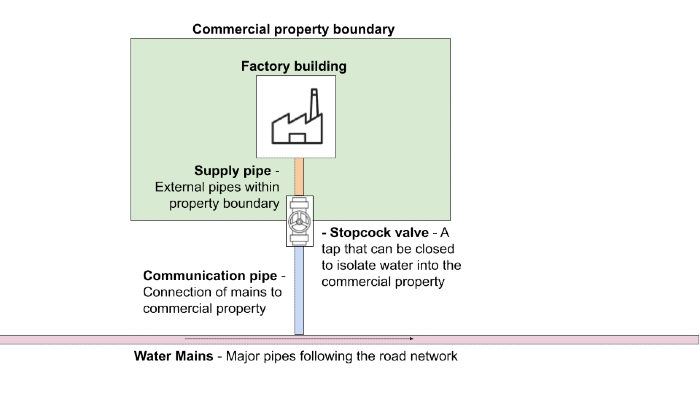Who provides a new water connection?
There are two choices for water connection providers.
Your local water wholesaler
This is the business that already owns and operates the mains network in the region around your new business property (Thames Water for business for example)
You can find out who is the local water wholesaler in your region here. Each regional wholesaler publishes water connection rates that they will charge for new properties.
The fee will depend on the length and size of the new communication pipes required and the type of surface excavated and reinstated.
Accredited self-lay provider
An accredited self-lay provider is a licensed third party that can connect new properties to the mains network.
Accredited self-layers have the advantage of being able to arrange for multiple utility connections to your property as a single project. Given the need to lay new pipework for a business energy connection and broadband services, it often makes sense for one company to manage all utility connections for your project.
Self-layers must be accredited with the Water Industry Registration Scheme so that the water wholesaler will agree to them making connections to the network.
What’s the process when a new water connection is installed?
You need to gain permission from the local water wholesaler to connect the water and wastewater through a water connection application. Water wholesalers must ensure your request does not jeopardise existing supplies to other businesses and households in the area. You must select a business water supplier for your property as part of the application process.
Upon being granted permission for the connection, the work can proceed to connect your property to the mains.
If your new property is close to an existing water main (usually on the nearest road), a communication pipe will be laid on the shortest route from the main to the boundary of your property.
A stopcock valve and water meter will be installed on the property boundary to measure the amount of water your property uses.
If there is no water main near your property, a new one may need to be constructed. This is often the case when a new road is built for commercial development properties.
